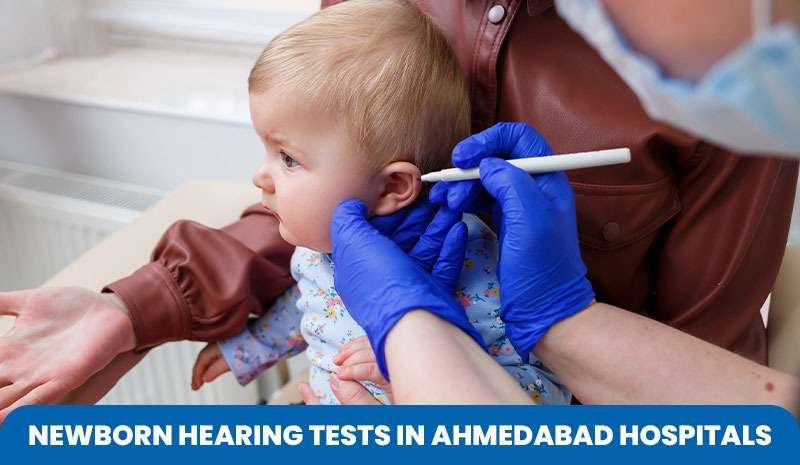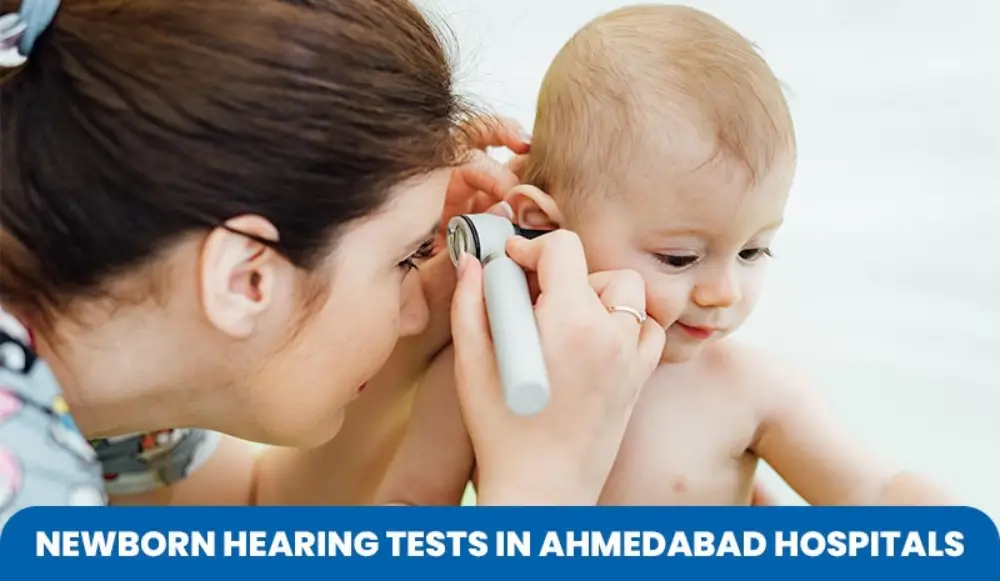Hearing is probably the most crucial sense for intellectual and social development in a new infant. Identifying hearing problems at an early stage can drastically influence the child’s communication and language. This is why newborn hearing tests in Ahmedabad hospitals are now routine, with early detection and, if required, treatment.
We will discuss the significance of newborn hearing screening, the protocol followed at Ahmedabad hospitals, tests conducted, and what parents should expect.
Why Are Newborn Hearing Tests Important?
Deaf infants are most commonly born to normally hearing parents, and hence early diagnosis is critical. Congenital hearing impairment is seen in 1 to 3 infants in every 1,000 live births. If hearing impairment is not diagnosed early, they will remain undetected for months or even years, and speech development and learning will be affected.
Newborn hearing screening allows healthcare providers to:
- Detect hearing issues early
- Provide timely treatment, including hearing aids or cochlear implants
- Improve speech and language development outcomes
- Reduce long-term educational and social challenges

How Newborn Hearing Tests Are Conducted in Ahmedabad Hospitals
Hospitals in Ahmedabad follow standardized procedures to conduct newborn hearing tests. These screenings are painless, quick, and performed while the baby is asleep or resting.
Step-by-Step Process of Newborn Hearing Screening
-
Initial Screening
- Conducted within the first 24-48 hours after birth
- Performed in the maternity ward or neonatal intensive care unit (NICU)
- Takes around 5-10 minutes
-
Types of Tests Used
There are two primary screening methods:- Otoacoustic Emissions (OAE) Test
- Measures the inner ear’s response to sound
- A tiny probe is placed in the baby’s ear to detect echoes from the cochlea
- Automated Auditory Brainstem Response (AABR) Test
- Checks how the brain responds to sound
- Small electrodes are placed on the baby’s head, and soft sounds are played
- Otoacoustic Emissions (OAE) Test
-
Interpreting the Results
- Pass: No hearing concerns detected
- Refer: Further testing needed due to inconclusive results
-
Follow-up Testing (If Needed)
- Conducted within a few weeks if the baby does not pass the initial test
- Performed by a pediatric audiologist
-
Diagnosis and Treatment
- If hearing loss is confirmed, specialists discuss intervention options, including hearing aids, speech therapy, or cochlear implants
What Parents Should Expect During the Test
Many parents worry about their newborn undergoing a hearing test. Here’s what to expect:
- The test is completely painless and safe
- It is conducted while the baby is asleep or calm
- No loud noises or discomfort are involved
- Results are available immediately or within a few hours
Newborn hearing screening is a vital step towards early detection and intervention for hearing loss. With rapid, painless screening tests, parents can be certain their baby’s hearing is on the right path. If you are pregnant or have a newborn, talk to your healthcare provider about scheduling a hearing screening to give your child the best possible start in life.
 +919979891672
+919979891672 











No Comments